
Muscle pain
Muscle pain is a symptom that appears frequently after intense, sustained muscular effort. This pain, called myalgia, can also be caused by bad posture, contracture (cramp, torticollis), muscle injury (tears), an infection, a metabolic or autoimmune disease, or an unidentified cause.
Temporary muscle pains and aches
Temporary muscles pains, which gradually fade once the muscle is at rest, are differentiated from aches, which appear several hours after the effort. These two types of pain require no special treatment, although taking analgesics can help reduce their intensity. During intense, sustained effort, the oxygen supply to the body is no longer sufficient to meet the needs of the muscle fibers. This oxygen deficiency leads to the increased production of an organic substance, lactic acid. Its accumulation in the muscles is the source of temporary muscle pain. Good hydration (drinking water during physical effort) allows the body to better evacuate lactic acid.
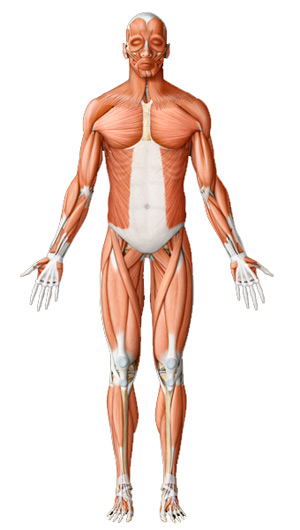 |
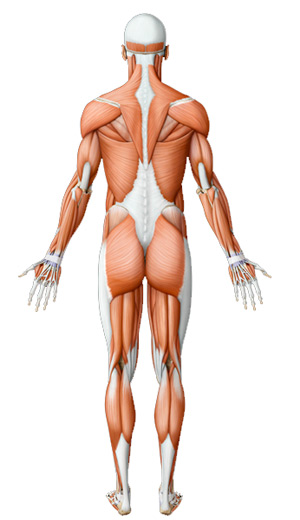 |
| Anterior view - Virtual Human Body | Posterior view - Virtual Human Body |
Contracture
A contracture is the involuntary contraction of a muscle or of the muscle fibers. This contraction, which can be long or short in duration, can lead to pain and localized motor problems. Most often, these are harmless (cramps, torticollis), caused by excessive strain on a muscle or poor posture. Rest, muscle relaxants, antiinflammatories, and analgesics can relieve painful contractures within a few days.
Relieving and preventing muscle pain
Prefer complex carbohydrates and proteins
Eat food rich in complex carbohydrates before and after playing sports. Complex carbohydrates, found in cereal products and legumes, provide the energy that your muscles need and limit aches. Also eat protein-rich food (meat, fish, eggs, dairy products, nuts, legumes). Proteins are essential to muscle fiber regeneration and repair.Drink water
Drink a lot of water while engaging in physical activity. Water helps to prevent muscle exhaustion, cramps, and aches.Eat simple carbohydrates during physical effort
During physical activity (especially long and intense activities), eat simple carbohydrates. These can be found in fruit (especially dried fruit) and in sugary foods and beverages. Simple carbohydrates provide a fast supply of energy to working muscles and prevent or limit their exhaustion.Warm up
Warm up before starting a physical activity. Stretching allows the muscles, tendons, and ligaments to be activated gradually. Afterward, they are better able to absorb impacts.Massage your muscles
Massage and gently stretch your muscles after exercising. This will reduce the risk of cramps and aches.Rest
When you have aches, rest your sore muscles to allow them to recuperate. Take anti-inflammatories for particularly painful aches.Stretch the contracted muscle
If you have a muscle cramp, stretch and rub the painful muscle, then apply heat to it. Avoid uncomfortable positions, which can also trigger cramps.Avoid overexertion
When engaged in sports or work activities (handling boxes, computer transcription, etc.), avoid overexerting your muscles and tendons by excessively repetitive movements. Take regular breaks to stretch and rest the muscles and tendons you are using.
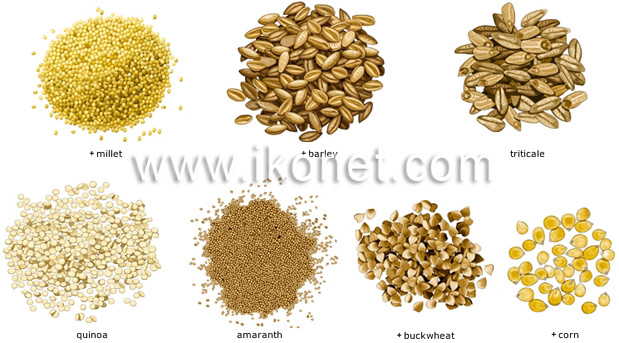 |
| Cereal |
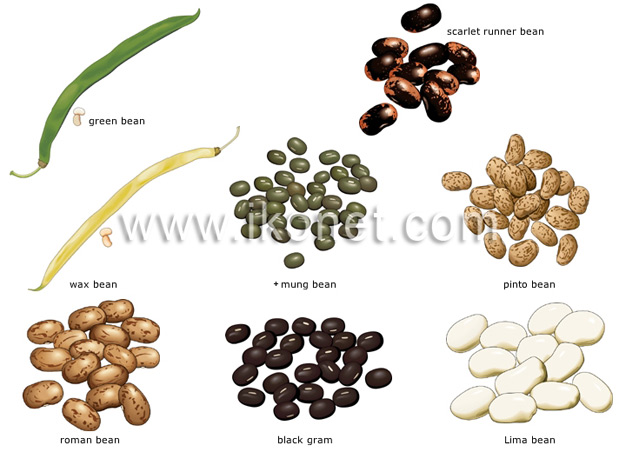 |
| Beans |
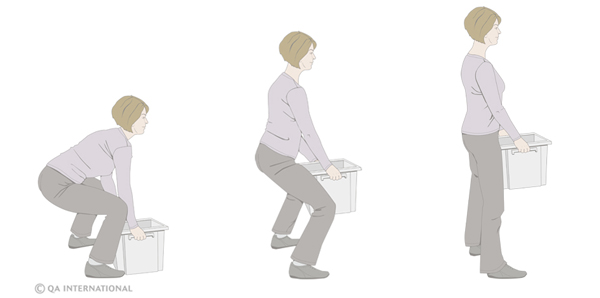
Also see
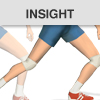
|
Physical activity: how to avoid injuries Each exercise session must start with a warm-up period, and end with stretching exercises, to avoid injuries and muscle soreness. [...] |
|---|---|

|
A balanced diet Recommendations, rules for a healthy diet, food labeling |
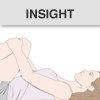
|
Preventing and relieving backache Many factors can trigger a backache: an awkward movement, improper handling of a heavy object, bad posture, stress, etc. Simple tricks can help to relieve or prevent backaches.[...] |
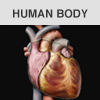
|
Muscles - Virtual Human Body |





